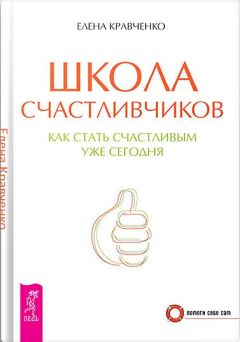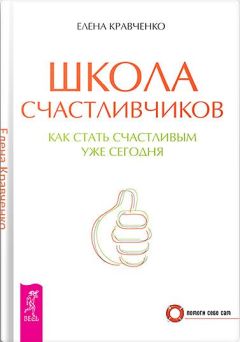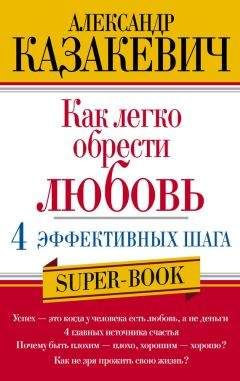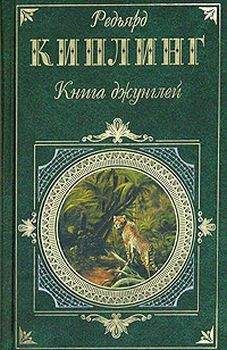Редьярд Киплинг - Английский с Редьярдом Киплингом. Рикки-Тикки-Тави / Rudyard Kipling. Rikki-Tikki-Tavi
His mother Radha Pyari, – Radha the darling, – who had been caught in the same drive with Kala Nag, told him, before his little milk tusks had dropped out, that elephants who were afraid always got hurt. Kala Nag knew that that advice was good, for the first time that he saw a shell burst he backed, screaming, into a stand of piled rifles, and the bayonets pricked him in all his softest places. So, before he was twenty-five, he gave up being afraid, and so he was the best-loved and the best-looked-after elephant in the service of the Government of India.
He had carried tents (он переносил палатки; to carry – везти, нести), twelve hundred pounds’ weight of tents (палатки, весом двенадцать сотен фунтов /сразу/; pound – фунт /мера веса, используемая в англоговорящих странах; = 453,6 г/; weight – вес), on the march in Upper India (во время похода в Верхнюю Индию; march – походное движение, марш, передвижение войск). He had been hoisted into a ship at the end of a steam crane and taken for days across the water (его поднимали на судно концом парового крана и в течение /многих/ дней везли по воде; to hoist – поднимать /что-либо/; to take – брать; доставлять, сопровождать), and made to carry a mortar on his back in a strange and rocky country very far from India (а /потом/ заставили нести мортиру на своей спине в незнакомой ему скалистой стране, /где-то/ очень далеко от Индии; to make – делать, создавать; заставлять), and had seen the Emperor Theodore lying dead in Magdala (и он видел императора Теодора, лежащего мертвым в Магдале), and had come back again in the steamer entitled (и вернулся на пароходе обратно, /получив/ право; to entitle – называть, давать название; давать право /на что-либо/), so the soldiers said (так говорили солдаты), to the Abyssinian War medal (на медаль Абиссинской Войны).
He had carried tents, twelve hundred pounds’ weight of tents, on the march in Upper India. He had been hoisted into a ship at the end of a steam crane and taken for days across the water, and made to carry a mortar on his back in a strange and rocky country very far from India, and had seen the Emperor Theodore lying dead in Magdala, and had come back again in the steamer entitled, so the soldiers said, to the Abyssinian War medal.
He had seen his fellow elephants die of cold and epilepsy and starvation and sunstroke up at a place called Ali Musjid, ten years later (он видел, как его собратья-слоны умирали от холода, падучей болезни: «эпилепсии», голода и солнечных ударов в месте, называемом Али-Масджид десять лет спустя; fellow – /разг./ человек, парень; приятель, товарищ, коллега, собрат); and afterward he had been sent down thousands of miles south to haul and pile big balks of teak in the timberyards at Moulmein (и потом его послали на несколько тысяч миль южнее трелевать и складывать в груды большие = толстые стволы тикового дерева на лесных складах Мулмейна; to send; down – вниз; к югу; to haul – тащить, тянуть; трелевать /лес/; to pile – складывать, сваливать в кучу, груду; pile – куча, груда). There he had half killed an insubordinate young elephant who was shirking his fair share of work (там он наполовину = чуть не убил непокорного молодого слона, уклонявшегося от своей законной доли работы; subordinate – зависимый, подчиненный; insubordinate – недисциплинированный; непокорный, непослушный; to shirk – красться, подкрадываться; увиливать, уклоняться; fair – честный; законный; share – доля, часть).
He had seen his fellow elephants die of cold and epilepsy and starvation and sunstroke up at a place called Ali Musjid, ten years later; and afterward he had been sent down thousands of miles south to haul and pile big balks of teak in the timberyards at Moulmein. There he had half killed an insubordinate young elephant who was shirking his fair share of work.
After that he was taken off timber-hauling (после этого его увезли от лесных порубок; to take off – уводить, увозить; to haul – тащить, тянуть; трелевать /лес/), and employed, with a few score other elephants who were trained to the business, in helping to catch wild elephants among the Garo hills (и поручили ему вместе с несколькими десятками других слонов, обученных этому делу, помогать /людям/ ловить диких слонов в горах Гаро; to employ – держать на службе; предоставлять работу, нанимать; to train – тренировать/ся/, готовить/ся/, обучать/ся/; score – два десятка). Elephants are very strictly preserved by the Indian Government (слоны очень строго охраняются Правительством Индии; to preserve – сохранять, сберегать; беречь, охранять). There is one whole department which does nothing else but hunt them (существует целый департамент, который не делает ничего, кроме как = занимается только тем, что охотится на них), and catch them (ловит их), and break them in (укрощает их; to break in – дрессировать; укрощать), and send them up and down the country as they are needed for work (и рассылает их по стране туда, где они нужны для работы = требуется их труд; up and down – вверх и вниз; здесь и там; там и сям; в разных местах).
After that he was taken off timber-hauling, and employed, with a few score other elephants who were trained to the business, in helping to catch wild elephants among the Garo hills. Elephants are very strictly preserved by the Indian Government. There is one whole department which does nothing else but hunt them, and catch them, and break them in, and send them up and down the country as they are needed for work.
Kala Nag stood ten fair feet at the shoulders (Кала Наг имел полных десять футов в плечах; to stand – стоять; быть высотой/ростом в…; fair – красивый; абсолютный, полный), and his tusks had been cut off short at five feet (его бивни были укорочены до пяти футов; to cut – резать, разрезать; to cut off – обрезать, отрезать; short – короткий), and bound round the ends, to prevent them splitting, with bands of copper (и окованы по концам полосками из меди, чтобы предохранить их от расщепления = чтобы они не расщеплялись; to bind – вязать, связывать; обшивать; вправлять более слабый материал в оправу из более прочного; to prevent – предотвращать, предупреждать, предохранять; to split – раскалывать/ся/, расщеплять/ся/; band – лента, повязка; полоска); but he could do more with those stumps than any untrained elephant could do with the real sharpened ones (но он мог сделать этими обрубками больше, чем любой необученный слон своими настоящими, заостренными /бивнями/; stump – обрубок; to train – тренировать/ся/, обучать/ся/; to sharpen – заострять; sharp – острый). When, after weeks and weeks of cautious driving of scattered elephants across the hills (когда, после недель и недель = многих недель осторожного преследования разрозненных слонов через горы; to drive – везти, перевозить; гнать, преследовать; to scatter – разбрасывать, раскидывать; разъединять, разрознивать), the forty or fifty wild monsters were driven into the last stockade (сорок или пятьдесят диких чудовищ заводили в последний загон; stockade – забор, ограждение; загон для скота), and the big drop gate (и большая падающая дверь; to drop – капать; падать), made of tree trunks lashed together (сделанная из крепко связанных вместе стволов деревьев; to lash – хлестать, стегать; крепко связывать), jarred down behind them (дребезжа, опускалась позади них; to jar – издавать неприятный, резкий звук; дребезжать), Kala Nag, at the word of command, would go into that flaring, trumpeting pandemonium (Кала Наг, по команде, входил в этот освещенный вспышками /факелов/ и ревущий пандемониум;[6] word of command – /воен.//устная/ команда; word – слово; to flare – гореть ярким пламенем; ярко вспыхивать; to trumpet – трубить; реветь /о слоне/) (generally at night, when the flicker of the torches made it difficult to judge distances (обычно ночью, когда мерцание факелов делало затруднительным определение расстояний; flicker – мерцание, мигание; to judge – судить, выносить приговор; оценивать, определять)), and, picking out the biggest and wildest tusker of the mob (и, выбрав самого крупного и самого дикого обладателя бивней из этого сборища; to pick – собирать; to pick out – выбирать; tusk – клык, бивень /слона, моржа/; tusker – животное с клыками, бивнями), would hammer him and hustle him into quiet while the men on the backs of the other elephants roped and tied the smaller ones (/начинал/ бить и гонять его, /пока тот не/ затихал, а люди, /сидевшие/ на спинах других слонов, связывали веревками и привязывали более мелких /животных/; to hammer – бить, ударять; to hustle – толкать; гнать вперед, подгонять; quiet – затишье, тишь; to rope – связывать веревкой; rope – веревка; to tie – завязывать/ся/, привязывать).
Kala Nag stood ten fair feet at the shoulders, and his tusks had been cut off short at five feet, and bound round the ends, to prevent them splitting, with bands of copper; but he could do more with those stumps than any untrained elephant could do with the real sharpened ones. When, after weeks and weeks of cautious driving of scattered elephants across the hills, the forty or fifty wild monsters were driven into the last stockade, and the big drop gate, made of tree trunks lashed together, jarred down behind them, Kala Nag, at the word of command, would go into that flaring, trumpeting pandemonium (generally at night, when the flicker of the torches made it difficult to judge distances), and, picking out the biggest and wildest tusker of the mob, would hammer him and hustle him into quiet while the men on the backs of the other elephants roped and tied the smaller ones.
There was nothing in the way of fighting that Kala Nag, the old wise Black Snake, did not know (в смысле приемов борьбы не было ничего, чего бы Кала Наг, старый мудрый Черный Змей, не знал; way – путь, дорога; способ, прием), for he had stood up more than once in his time to the charge of the wounded tiger (потому что, в свое время, он не раз: «больше чем один раз» противостоял нападению раненого тигра; to stand up – оказываться прочным, оставаться в рабочем состоянии; смело встречать; charge – атака, нападение; to wound – ранить), and, curling up his soft trunk to be out of harm’s way (скрутив свой мягкий хобот, чтобы быть вне вреда = не повредить его; to curl up – скручивать/ся/; trunk – ствол /дерева/; хобот /у слонов/; harm – вред), had knocked the springing brute sideways in mid-air with a quick sickle cut of his head, that he had invented all by himself (он отбрасывал прыгающего зверя в сторону высоко в воздухе быстрым серпообразным ударом головы, который придумал сам; to knock – ударять, бить; to spring – прыгать, скакать; air – воздух; in mid air – высоко в воздухе; sickle – серп, что-либо в форме серпа; cut – разрезание; удар; to invent – изобретать; придумывать); had knocked him over (сбивал его с ног; to knock over – сбить с ног), and kneeled upon him with his huge knees till the life went out with a gasp and a howl (и становился на него своими громадными коленями, /не вставая/ до тех пор, пока /из него/ не выходила жизнь вместе с дыханием и воем; to kneel – преклонять колени, становиться на колени; gasp – затрудненное дыхание, удушье), and there was only a fluffy striped thing on the ground for Kala Nag to pull by the tail (а на земле оставалось только что-то пушистое и полосатое, что Кала Наг тянул за хвост; to pull – тащить, тянуть).




